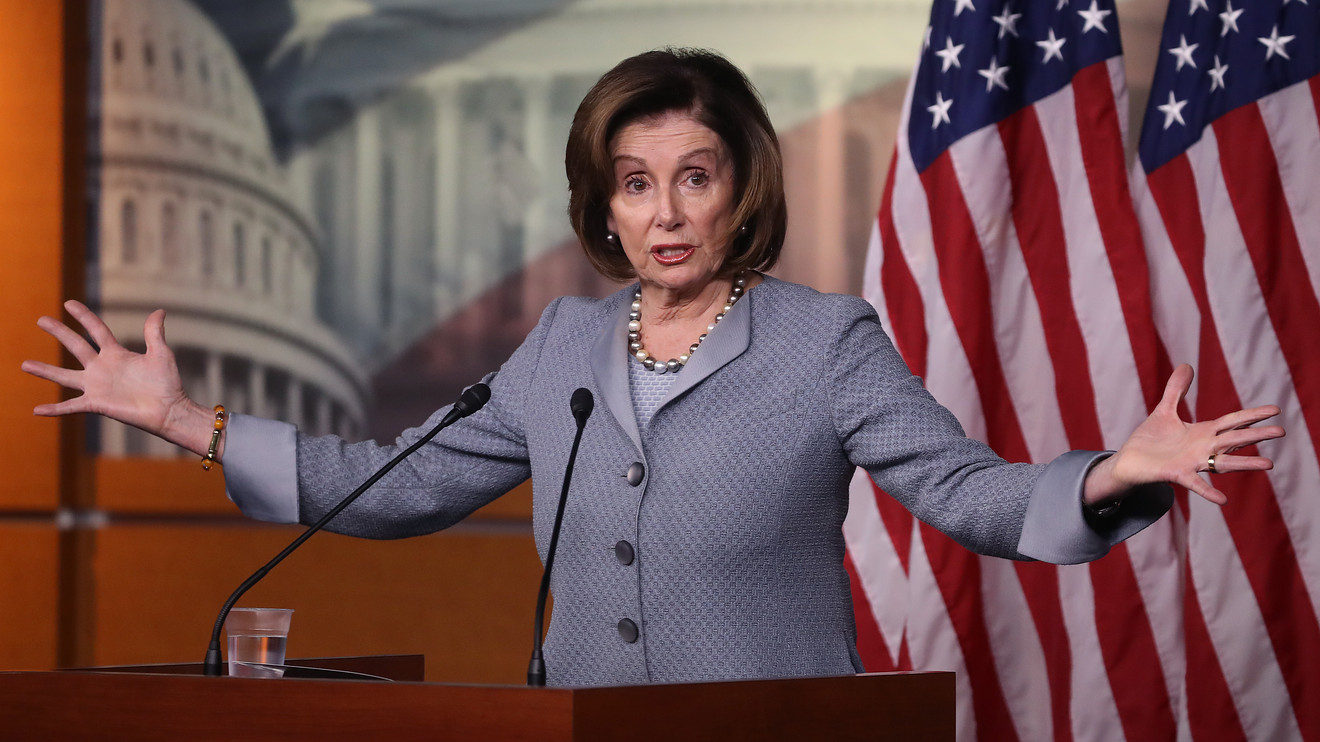
The two major parties clashed this week on how best to help workers affected by the coronavirus pandemic, as GOP lawmakers opposed two Democrat measures aimed at securing paid sick leave for impacted employees.
Coronavirus had infected over 127,800 people globally and killed over 4,700 as of Thursday, according to data from Johns Hopkins University’s Center for Systems Science and Engineering, and over 68,000 recoveries. The U.S. had over 1,300 confirmed coronavirus cases and at least 38 deaths.
House Minority Leader Kevin McCarthy (R-Calif.) came out Thursday against multi-billion-dollar coronavirus legislation introduced late Wednesday by House Democrats, calling the bill “completely partisan” and “unworkable.”
The Democrats’ bill would provide paid emergency leave with 14 paid sick days and up to three months’ paid family and medical leave, House Speaker Nancy Pelosi’s (D-Calif.) office said. It would also provide free coronavirus testing for those who need it (including uninsured patients), protections for workers on the frontlines of the pandemic, “enhanced unemployment insurance,” and initiatives to bolster food security.
“We cannot slow the coronavirus outbreak when workers are stuck with the terrible choice between staying home to avoid spreading illness and the paycheck their family can’t afford to lose,” Pelosi said in a statement.
The White House and Senate Majority Leader Mitch McConnell have also registered disapproval of the bill, though Pelosi appeared determined to bring it to a vote Thursday. Pelosi spoke with Treasury Secretary Steven Mnuchin Thursday morning about “language recommendations” from the White House for the bill, her deputy chief of staff, Drew Hammill, wrote on Twitter TWTR, -14.44% .
The Republican opposition came soon after President Trump delivered a sober Oval Office address about his administration’s response to the COVID-19 pandemic, which had sickened at least 1,323 people in the U.S. and killed 38 as of Thursday, according to Johns Hopkins University’s Center for Systems Science and Engineering.
Amid other announcements regarding restricting travel from Europe and clearing the path for coronavirus testing and treatment, Trump addressed relief for workers who were “ill, quarantined or caring for others due to coronavirus.”
“To ensure that working Americans impacted by the virus can stay home without fear of financial hardship, I will soon be taking emergency action, which is unprecedented, to provide financial relief,” he said. “I will be asking Congress to take legislative action to extend this relief.”
Earlier Wednesday, Sen. Lamar Alexander (R-Tenn.) blocked the quick passage of emergency paid sick-day legislation introduced by Democratic Sen. Patty Murray of Washington, a state hit particularly hard by the disease. The legislation would require employers to let employees accrue seven paid sick days immediately, as well as provide 14 paid sick days for use during a public-health emergency, including the COVID-19 pandemic.
“The idea of paid sick leave is a good idea — but if Washington, D.C., thinks it’s a good idea, Washington, D.C., should pay for it,” Alexander said on the Senate floor. “Employees are struggling; so are employers struggling.”
Public-health officials have encouraged people to stay home if they feel sick, an unrealistic proposition for many low-wage and gig workers. The federal government doesn’t currently guarantee paid sick leave, though eligible employees working for companies covered by the Family and Medical Leave Act (FMLA) can take up to 12 weeks of unpaid leave for certain medical situations.
About 73% of private-industry workers had access to paid sick leave in 2019, according to the Bureau of Labor Statistics, compared to 91% of state and local government employees. And just 30% of private-industry workers in the lowest 10% of wages have access to paid sick days, compared to 93% of workers in the highest 10% of wages.
Some 58% of workers in service occupations had access to paid sick leave in 2019, versus 90% of workers in management, professional and related occupations — and full-time workers are far more likely than part-time workers to have access to paid sick-leave benefits than part-time workers
Companies including Walmart WMT, -9.07%, McDonald’s MCD, -9.63%, Apple AAPL, -9.88%, Uber UBER, -13.83% and Olive Garden parent Darden Restaurants DRI, -15.72% have revised their sick-leave policies in light of the new coronavirus.
A growing number of states, counties and cities have also implemented paid sick-leave laws in recent years. Eleven states and the District of Columbia now require that some employees receive paid sick leave, according to the bipartisan National Conference of State Legislatures. San Francisco, Oakland, Chicago, New York City, Westchester County, Philadelphia, Dallas and Seattle also have such laws, according to the nonprofit National Partnership for Women & Families.
div > iframe { width: 100% !important; min-width: 300px; max-width: 800px; } ]]>





